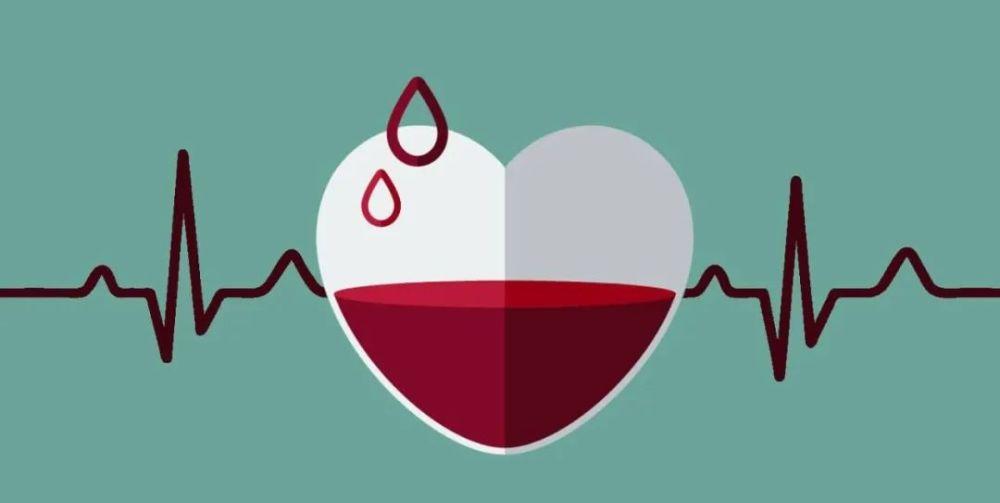Hello! I am Liu Jian
Today is the 547th issue that Jian Ge said to accompany you
When it comes to iron deficiency, many people will think of anemia, iron deficiency is indeed a common cause of anemia, but you know what? Iron deficiency and coronary heart disease are also closely related, and even have an impact on the risk of death from coronary heart disease. In this issue, we'll take a look at what's going on.
Iron is important to the human body
Iron is an essential and important trace mineral element. Iron is not only a component of important tissues and organs of the human body (such as muscles, liver, spleen, bone marrow, etc.), but also participates in the synthesis of myoglobin and hemoglobin, which is closely related to oxygen transport in the body, and at the same time, iron is also involved in the composition of a variety of enzymes in the body.
About 2/3 of the iron in the human body is stored in the hemoglobin of red blood cells. When the human body is deficient in iron, it will cause the gradual depletion of iron stored in the body, and the synthesis of hemoglobin will be reduced, which will lead to iron deficiency anemia. Severe iron deficiency in the human body may lead to an increased risk of developing certain diseases.

There are many patients with iron deficiency anemia in China, and the results of the fourth nutritional survey in China show that the prevalence of anemia is 20.1%, of which half are iron deficiency anemia. It is conceivable that there are not a few people with iron deficiency.
Iron deficiency increases the risk of morbidity and mortality of coronary heart disease
A recent study published by scholars at the Heart and Vascular Center of the University of Hamburg in Germany found that most middle-aged people have iron deficiency, and by preventing iron deficiency, it is possible to reduce the number of new coronary heart disease cases in middle-aged people by about 10% in the next decade [1].
The study looked at more than 12,000 people with no previous history of coronary heart disease or stroke, with an average age of 59 years, divided into two categories based on iron deficiency in the body: absolute iron deficiency, which refers to the decline in the body's storage of iron; and functional iron deficiency, which refers to the decline in the body's iron storage or the decline in iron levels for the body's circulation. At the start of the study, 60% of the participants had absolute iron deficiency and 64% of the participants had functional iron deficiency.
After a median follow-up of 13.3 years, the analysis found that the risk of coronary heart disease in patients without functional iron deficiency increased by 24%, the risk of cardiovascular death increased by 26%, and the risk of all-cause death increased by 12%. People with absolute iron deficiency have a 20% increased risk of coronary heart disease compared with those without absolute iron deficiency, but were not related to mortality.
How to supplement iron reasonably?
The results of this study still need to be verified by large-scale studies, but it also suggests that iron deficiency not only leads to anemia, but also may hurt the "heart", and it is necessary to pay enough attention to iron deficiency.
So, how should we scientifically supplement iron every day?
First, iron deficiency often occurs in middle-aged and elderly people, pregnant and lactating women, and infants and young children, and it is recommended that these groups be checked regularly to screen for iron deficiency. If there is iron deficiency, a reasonable iron supplementation program should be determined under the guidance of a professional doctor, and it is necessary to avoid blindly supplementing a large amount of iron to cause unnecessary side effects.
Secondly, dietary iron supplementation is exquisite. According to the Dietary Guidelines for Chinese Residents, it is recommended that adult women consume 20 mg of iron per day and 12 mg for men. However, adequate intake is not equal to absorption, often said spinach iron supplementation, but the iron absorption rate in spinach is only 7%, far lower than the iron absorption rate in animal foods, therefore, it is recommended to consume red meat, animal blood or liver to supplement iron, in addition, eat more citrus, green leafy vegetables and other vitamin C-rich foods can promote the absorption of non-heme iron [2].
Brother Jian said
Iron is an essential and important trace mineral element, iron deficiency not only leads to iron deficiency anemia, but also induces many diseases.
Recent studies have found that most middle-aged people have iron deficiency, which is associated with a significantly increased risk of coronary heart disease morbidity and mortality.
Special groups should check iron levels regularly, and pay attention to daily dietary attention to choosing animal foods rich in heme iron to supplement iron.
Today's content is finished, and the next issue is more exciting.
Heart health knowledge is in "Jian Ge Says Heart"
We'll see you next time.
bibliography
[1] Schrage B, Rübsamen N, Ojeda FM,, et al. Association of iron deficiency with incident cardiovascular diseases and mortality in the general population. ESC Heart Fail. 2021 Oct 5.
[2] Working Group of "Expert Consensus on Nutritional Prevention and Treatment of Iron Deficiency Anemia" of Chinese Nutrition Society. Expert consensus on nutritional prevention and treatment of iron deficiency anemia. Journal of Nutrition.2019; 41(5):417-426.
Speaker: Liu Jian